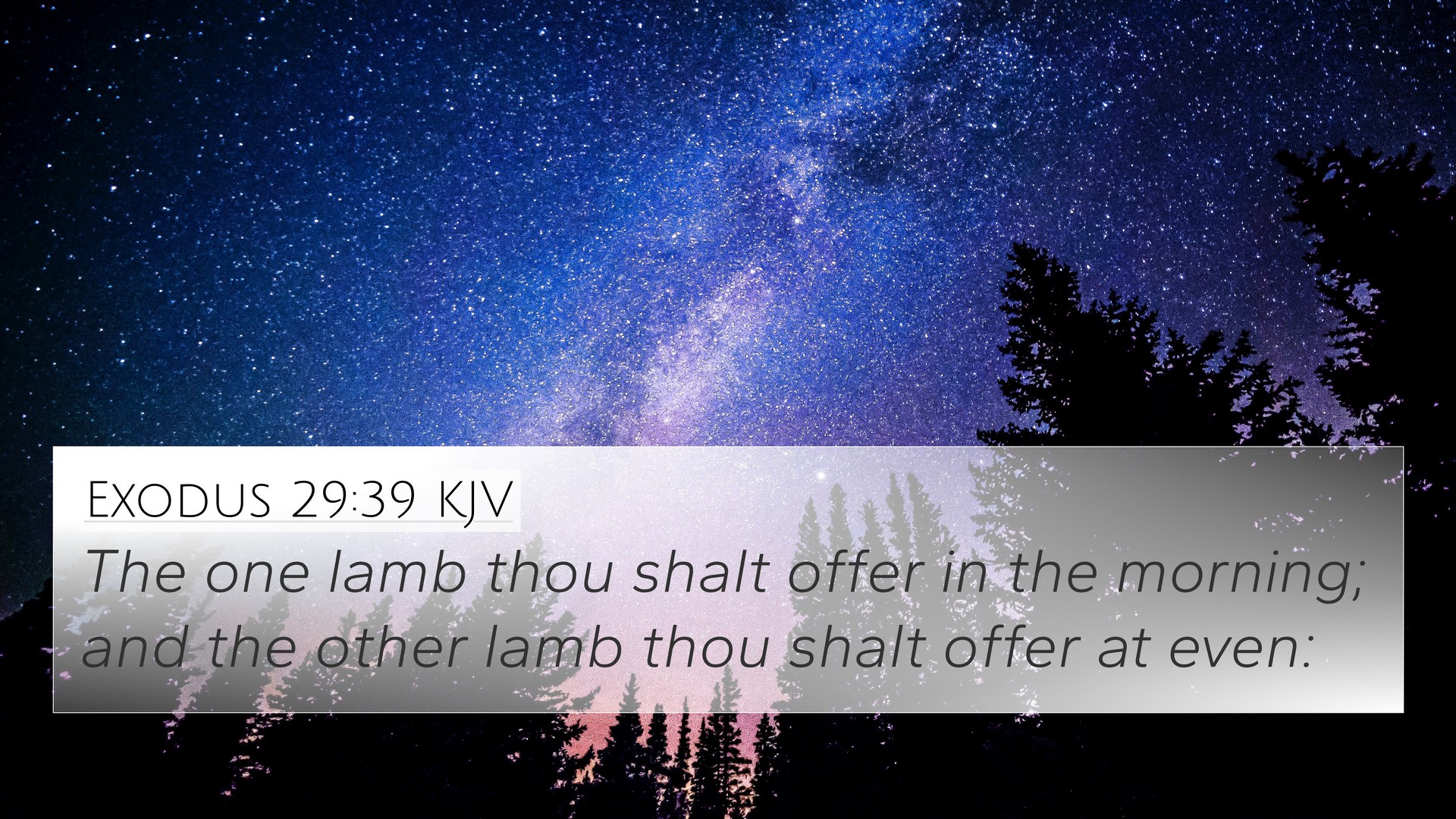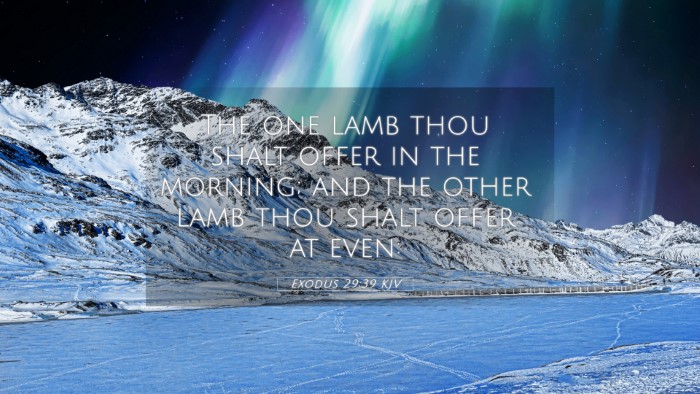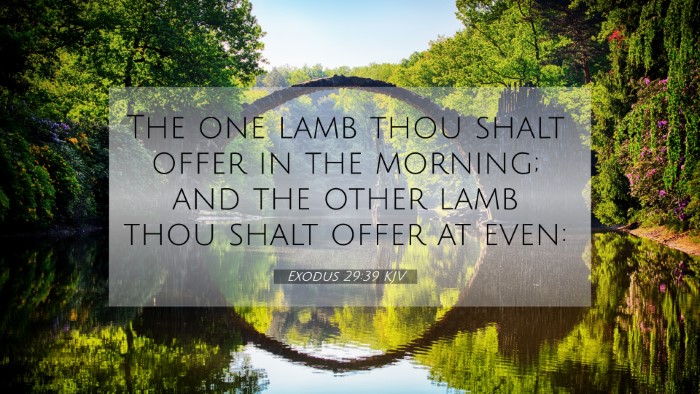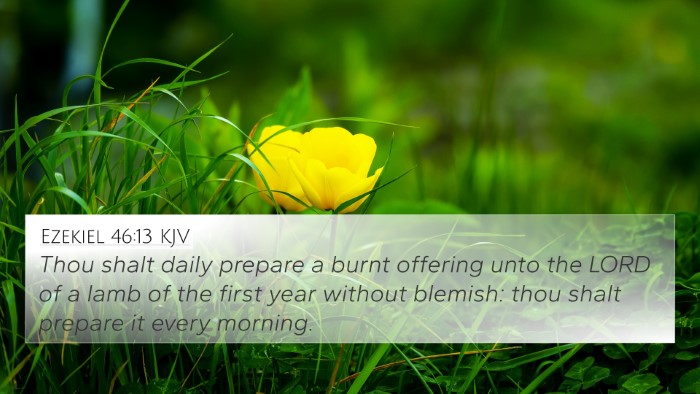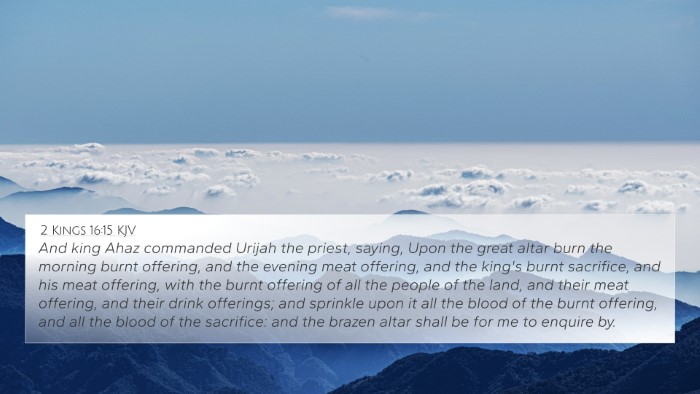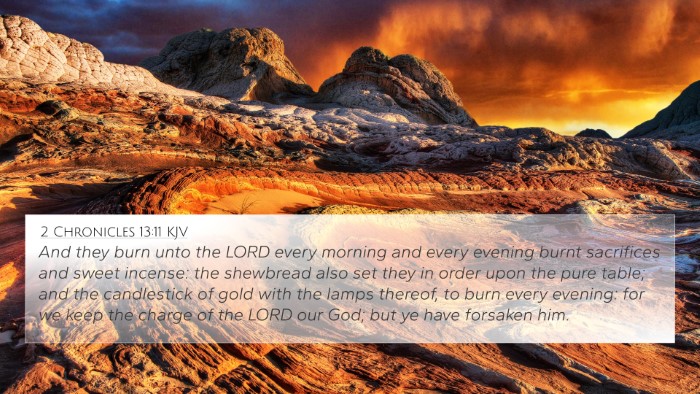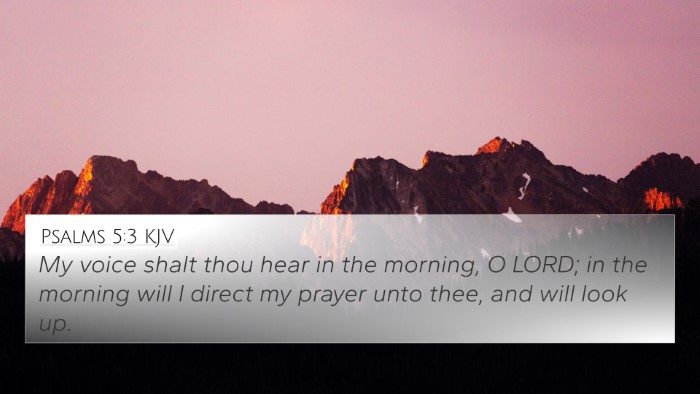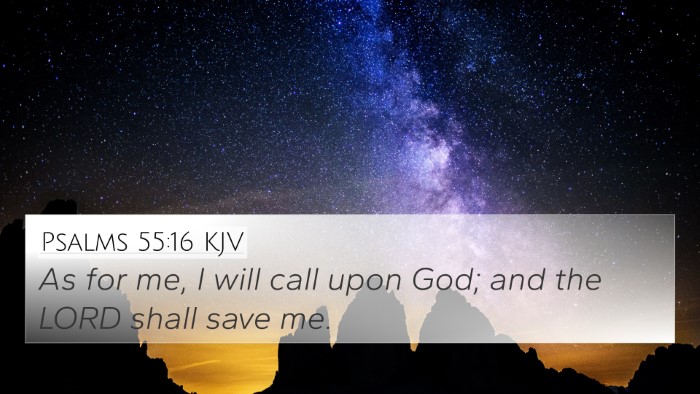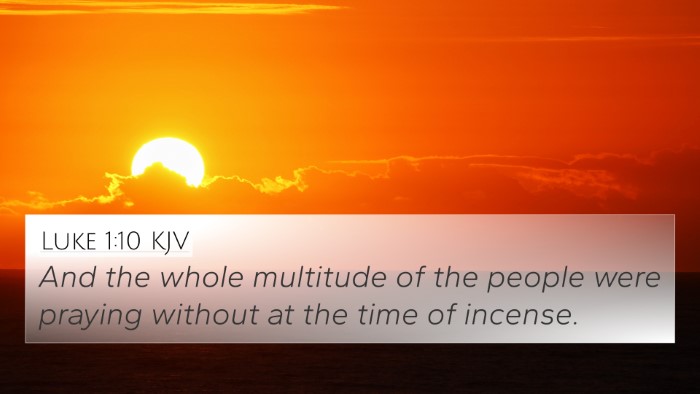Understanding Exodus 29:39
Exodus 29:39 states: "The one lamb you shall offer in the morning, and the other lamb you shall offer at twilight." This verse is part of the instructions given by God to Moses concerning the consecration and daily offerings in the Tabernacle.
This section of Scripture emphasizes the importance of regular worship and the continuous nature of atonement. The daily sacrifice signifies both a commitment to God and the need for ongoing offerings for sin.
Commentary Insights
- Matthew Henry's Commentary:
Henry elaborates on the ritual significance of the daily offerings, suggesting they serve as reminders of God’s grace and the perpetual need for atonement. The morning and evening lambs represent the start and end of the day, indicating that worship should be a constant part of our lives.
- Albert Barnes' Commentary:
Barnes notes that the instructions about the lambs emphasize both the substitutionary aspect of the sacrifices and the foreshadowing of Christ’s ultimate sacrifice. By offering these lambs, the people of Israel acknowledged their dependence on God for forgiveness and sustenance.
- Adam Clarke's Commentary:
Clarke discusses the practical implications of these sacrifices, highlighting how they reflected God's desire to dwell among His people and provide a means for their reconciliation. He points out that the timing of the sacrifices serves a dual purpose of public worship in the community and personal devotion.
Thematic Connections and Cross-References
This verse connects with several key themes and other Scripture passages. Below are some essential cross-references that illustrate the broader biblical narrative surrounding sacrifice and worship:
- Leviticus 6:13: "Fire shall be kept burning on the altar continually; it shall not go out." - Emphasizes the constant nature of worship.
- Psalm 55:17: "Evening and morning, and at noon, will I pray, and cry aloud: and he shall hear my voice." - Reflects the regularity of approaching God in prayer and sacrifice.
- Hebrews 10:12: "But when Christ had offered for all time a single sacrifice for sins, he sat down at the right hand of God." - Connects the Old Testament sacrifices to the final atonement in Christ.
- 1 Peter 1:19: "But with the precious blood of Christ, like that of a lamb without blemish or spot." - Highlights Christ as the ultimate fulfillment of the sacrificial lamb.
- Romans 12:1: "I appeal to you therefore, brothers, by the mercies of God, to present your bodies as a living sacrifice, holy and acceptable to God, which is your spiritual worship." - Transition from animal sacrifices to living sacrifices in worship.
- John 1:29: "Behold, the Lamb of God, who takes away the sin of the world!" - Direct connection to Jesus as the fulfillment of the lamb sacrifices.
- Exodus 12:21-27: The Passover lamb - A key event reinforcing the significance of sacrificial lambs within Israel's theology and history.
- Matthew 26:28: "For this is my blood of the covenant, which is poured out for many for the forgiveness of sins." - Connection to Jesus' sacrifice during the Last Supper.
- Isaiah 53:7: "He was oppressed, and he was afflicted, yet he opened not his mouth; like a lamb that is led to the slaughter." - Prophetic link to Christ's sacrificial role.
- Numbers 28:4: "The one lamb you shall offer in the morning, and the other lamb you shall offer at twilight." - Directly reiterates the instruction for daily offerings.
Understanding Exodus 29:39 within its broader context allows for a rich exploration of sacrificial theology, emphasizing both the continuity of God's redemptive plan from the Old Testament to the New Testament and the ongoing call to worship in our daily lives.
For those studying the Scriptures, employing a Bible cross-reference guide can be invaluable in identifying and exploring connections between Bible verses. These tools assist in building a deeper understanding of themes and teachings throughout the entire biblical text.
Tools for Bible Cross-Referencing
Utilizing resources such as a Bible concordance or a Bible reference resource can enhance your study, helping to identify related passages that reinforce or expand upon the principles found in any given verse. Here are some methods:
- Cross-reference Bible study: Focus on related verses to build a thematic understanding.
- Identifying connections between Old and New Testament: Look for typologies and fulfillments, such as sacrifices.
- Comparative study of Pauline epistles: Analyze references to law and grace in the context of the Old Testament.
- Cross-referencing Psalms with New Testament teachings: Psalms often foreshadow and inform New Testament revelation.
In conclusion, Exodus 29:39 serves not only as a critical instruction for the ancient Israelites but also as a pivotal point for understanding the entirety of the redemptive narrative found within Scripture. By linking and connecting various biblical texts, believers can deepen their grasp of God's continuous work through both the sacrificial system and ultimately in Christ.
